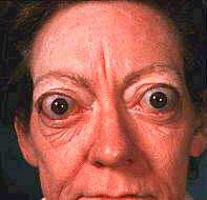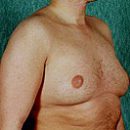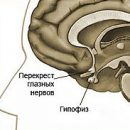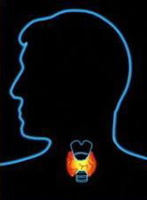Diseases of thyroid gland. How does thyroid disease manifest? How to treat these diseases? Read the answers to questions in the article.
Content
Diseases of the thyroid gland
Endocrinology
Take the alarm: over the past decades, the frequency of diseases of the thyroid
The glands have increased sharply. This is due to the irrational nutrition,
chronic stress and other unfavorable conditions.
Increased thyroid gland in size - goiter -
Most often makes the patient for the first time consult a doctor. by the way,
Normal thyroid capacity (according to ultrasound) in men 9-25 ml,
Women - 9-18 ml. During the examination, the doctor reveals an increase in the entire gland
or just a separate part of it. Accordingly, the diffuse
goiter and nodal goiter.
Diffuse goiter may be a consequence of various
Thyroid processes. Most often distinguished autoimmune
thyroiditis (thyroidel hashimoto), endemic goiter, diffuse toxic
goiter (goiter toxic or basehouse disease). However, diffuse goiter can
be a consequence of reception of drugs (thyareostatics), some food
Additives.
Nodal goiter is the formation of one or
several thyroid nodes. These formations can be like
benign (adenoma) and malignant.
The next stage of diagnostics is the definition of functional
The state of the thyroid gland - determination of the level of hormones. Highlight
Hypothyroidism - lack of hormones and hyperthyroidism (or thyrotoxicosis) - their excess.
How do the diseases of the thyroid gland

Hypothyroidism characterized by a slowdown in metabolism, deterioration
Working cardiovascular system, gastrointestinal tract,
oppression of mental and sexual activity. Sometimes hypothyroidism can
give complications in the form of a coma that can develop among the elderly
In the absence of treatment.
Most often leads to hypothyroidism autoimmune thyroiditis (thyroiditis
Hashimoto), operations, thyroid injuries, pituitary gland disease,
Sometimes the disadvantage of iodine in food. Aukoimmune thyroiditis - a disease in which the thyroid cells «by mistake»
are destroyed by the immune system, which takes them for alien.
Hyperthyroidism (thyrotoxicosis) - Status, inverse
hypothyroidism: excess thyroid hormones makes all organs
work with increased intensity, weight is reduced, marked
Psyche changes (increased excitability, frequent mood change).
However, most often the patient is forced to consult a doctor external
Manifestations: Eye Pragistry, Eyefoot, Two.
The most common cause of hyperthyroidism is a diffuse toxic goiter (goiter toxic or basned disease) - an increase in the thyroid gland and excessive products of hormones.
Thyrotoxicosis can be caused by hormonally active nodes (one
or multiple). Less rapidity are the diseases of the pituitary,
Overdose of thyroid hormones, sometimes increased iodine intake
With food. Goiter toxic may complicate exacerbation with development
extremely thyrotoxicosis - thyrotoxic crisis - dangerous for
Lifestyle.
Treatment of thyroid disease
Treatment of the goiter directly depends on its hormone
Activity. In hypothyroidism, the treatment of goiter is reduced to the substitution
Hormone therapy. Sometimes it is possible to improve work
thyroid gland due to activation of its internal resources.
Autoimmune thyroiditis requires mandatory immunocorrection for
Exceptions of further damage to the tissue of the thyroid gland.
Treatment of goiter with hyperthyroidism can be medicated
(drugs, overwhelming hormone formation) or surgical. After
Definitions of the disease of the disease are developing treatment tactics. but
Frequently, operations are held in cases where it would be possible
Do in other ways to treat. Therefore, the treatment of the goiter any
Origin should be carefully planned, and paramount role
It plays a full and competent diagnosis.









